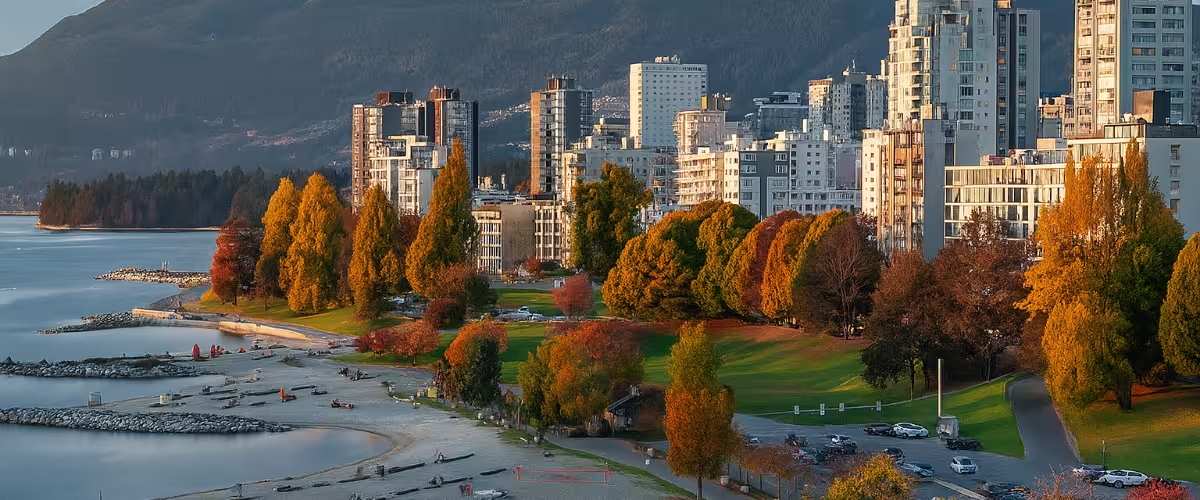

Best Places to Live in BC – Vancouver, Victoria, Kelowna, Surrey, and More
British Columbia (BC) is one of the most beautiful and livable provinces in Canada. Known for its breathtaking landscapes, cultural diversity, and thriving economy, BC attracts people from across the world who seek balance between urban convenience and outdoor adventure.
Whether you’re considering moving to British Columbia or exploring new cities within the province, this guide outlines the best places to live in BC in 2025, covering housing, lifestyle, cost of living, and local opportunities.
If you’re preparing to relocate, check out Top 10 Moving Tips for a Smooth Relocation in the Lower Mainland, BC to plan efficiently.
Why People Choose to Live in BC
British Columbia consistently ranks among Canada’s top destinations for both newcomers and lifelong residents. Here’s why so many people are drawn to life on the west coast:
-
Natural landscapes: BC’s geography includes mountains, forests, lakes, and coastlines, offering endless outdoor experiences.
-
Multicultural cities: The province embraces diversity, creating welcoming communities for newcomers.
-
Strong economy: Opportunities exist across technology, healthcare, education, trades, and film production.
-
High quality of life: BC offers excellent public healthcare, education, and access to nature.
-
Balanced lifestyle: You can live in a major city and still be within minutes of beaches, trails, and parks.
This combination of natural beauty, social inclusiveness, and career opportunities makes British Columbia one of the most sought-after places to live in Canada.
For a deeper dive into cost management and budgeting, see Financial Planning in British Columbia: Tips for Residents in 2025.
Cost of Living in British Columbia
The cost of living in BC varies significantly depending on the city or town you choose. Larger metropolitan areas like Vancouver and Victoria are known for higher housing costs, while Kelowna, Kamloops, and Abbotsford offer more affordability with strong amenities.
Below are general 2025 estimates to guide your budgeting:
-
Rent (1-bedroom apartment in downtown Vancouver): $2,000–$2,600 per month
-
Groceries (1 adult): $300–$600 per month
-
Utilities: $100–$200 per month
-
Public Transit (Metro Vancouver Compass Card): Around $110 monthly
These numbers vary by region, lifestyle, and family size. Smaller towns such as Mission, Langley Township, and Prince George typically offer more affordable living with lower rental and transportation costs.
To better plan your expenses, explore How to Move on a Budget in British Columbia Without Sacrificing Quality.
Most Popular Places to Live in BC
Vancouver
As BC’s largest city, Vancouver is a global hub for culture, business, and sustainability. Residents enjoy a vibrant downtown, efficient transit via SkyTrain, and easy access to Stanley Park, Granville Island, and nearby Grouse Mountain.
The city offers world-class dining, diverse neighborhoods like Kitsilano and Yaletown, and proximity to the U.S. border. However, housing costs are among the highest in Canada, making budgeting essential for newcomers.
To estimate your relocation costs, check Moving Costs in Vancouver, BC: How Much Do Movers Charge and How to Save.
Victoria
Victoria, the capital of British Columbia, sits on Vancouver Island and blends history with modern living. Its charming downtown features heritage buildings, walkable streets, and a thriving food scene.
Residents love the mild coastal climate, safe neighborhoods, and proximity to the ocean. It’s especially popular among retirees, remote workers, and professionals in government and education.
Victoria’s smaller population and slower pace make it a relaxing yet dynamic place to live.
Kelowna
Located in the Okanagan Valley, Kelowna is famous for its wineries, sunny weather, and relaxed lifestyle. It’s ideal for those who enjoy outdoor recreation like hiking, paddleboarding, and skiing in winter.
Kelowna’s cost of living is lower than in Vancouver or Victoria, and housing is more accessible. The growing tech sector and tourism industry make it a promising place for career growth and investment.
If you love adventure, read Outdoor Adventures in British Columbia: Hiking, Biking, and Water Sports in 2025.
Surrey
Surrey is one of the fastest-growing cities in BC, located just south of Vancouver. It offers a balance of affordability, diversity, and opportunity.
The city includes vibrant neighborhoods such as Guildford, Newton, and South Surrey, each with parks, schools, and business centers. With expanding infrastructure, new developments, and proximity to major highways, Surrey is perfect for families and newcomers seeking space and connectivity.
For moving advice within the region, check Ultimate Moving Checklist for British Columbia: Stress-Free Moves in Vancouver, Surrey, Kelowna, and Beyond.
Burnaby
Centrally located between Vancouver and Coquitlam, Burnaby combines urban living with green spaces. Residents enjoy Deer Lake Park, Metropolis at Metrotown, and Simon Fraser University.
Burnaby’s SkyTrain stations connect easily to downtown Vancouver, making it a commuter-friendly option with slightly lower housing costs.
Langley
Langley is a welcoming suburban city offering family-friendly neighborhoods, local wineries, and the historic Fort Langley Village. With its mix of urban amenities and farmland charm, it’s a top choice for families, young professionals, and retirees alike.
Nearby Langley Township features growing communities such as Willoughby and Aldergrove, ideal for those seeking affordable housing and access to nature.
Kamloops
Kamloops, located in the interior of BC, is known for its affordability, warm summers, and access to lakes and trails. Its strong education sector and lower housing costs make it attractive for families and students.
The city offers excellent recreation-from skiing at Sun Peaks Resort to mountain biking along scenic ridges.
Prince George
For those seeking a quieter and more affordable lifestyle, Prince George offers big-city amenities at small-town prices. Located in northern BC, it’s a regional hub for healthcare, education, and natural resource industries.
Residents enjoy outdoor access year-round, and housing prices remain among the lowest in the province.
Chilliwack and Abbotsford
Both Chilliwack and Abbotsford are part of the Fraser Valley and provide a blend of rural tranquility and modern convenience. Chilliwack is surrounded by mountains and farmland, while Abbotsford is known as the City in the Country for its balance of agriculture and urban life.
These cities offer lower home prices, family-friendly amenities, and access to hiking trails like Sumas Mountain and Cultus Lake.
Learn more about the region in Explore the Best Cities in British Columbia’s Lower Mainland in 2025.
Nelson and Courtenay
For those seeking creative, small-town living, Nelson in the Kootenays and Courtenay on Vancouver Island are two of BC’s most livable smaller communities.
Nelson is known for its arts scene, mountain views, and sustainable living focus. Courtenay offers access to Mount Washington Alpine Resort and beautiful beaches along the Comox Valley.
Climate and Seasons
British Columbia’s diverse geography means the climate varies by region:
-
Coastal BC (Vancouver, Victoria): Mild winters, moderate rainfall, and comfortable summers.
-
Interior BC (Kelowna, Kamloops): Hot, dry summers and snowy winters.
-
Northern BC: Colder temperatures with longer winters and shorter summers.
This variety allows for year-round activities-skiing, hiking, cycling, and kayaking-no matter where you live.
Transportation and Commuting
Transportation in BC is efficient in major urban areas and more flexible in rural ones.
-
Metro Vancouver: Served by TransLink, which operates buses, SkyTrain, and the SeaBus.
-
Victoria: Offers BC Transit services and bike-friendly roads.
-
BC Ferries: Connects the mainland to Vancouver Island and other coastal communities.
Owning a car is often necessary in smaller cities and rural regions, though public transportation is improving across the province.
Job Opportunities Across BC
British Columbia’s economy is diverse and growing, creating opportunities for residents in many sectors:
-
Technology and software development
-
Healthcare and nursing
-
Film and television production
-
Education and public service
-
Construction and skilled trades
-
Forestry, mining, and natural resources
Cities like Vancouver, Surrey, and Victoria lead job growth, while emerging hubs like Kelowna and Kamloops attract startups and remote workers.
For newcomers, Financial Planning in British Columbia: Tips for Residents in 2025 can help balance income with expenses.
Health, Food, and Wellness
BC residents enjoy access to healthcare through the Medical Services Plan (MSP) and a lifestyle that emphasizes outdoor fitness. There are parks, trails, and gyms in every community.
The food culture is diverse, with influences from around the world. Vancouver and Victoria are culinary destinations offering Japanese, Persian, Indian, and Italian cuisines. Farmers’ markets and sustainable agriculture also play a large role in BC’s food scene.
Family Life and Education
British Columbia is one of Canada’s best provinces for raising families. The public education system is strong, with kindergarten starting at age five.
Parents can also choose from private, French immersion, and alternative programs. The province is home to top universities like UBC and Simon Fraser University, as well as technical schools and colleges throughout BC.
Community centers, libraries, and recreation programs keep families active and connected year-round.
Final Thoughts
British Columbia offers a unique mix of urban sophistication and natural beauty, making it one of the best places in Canada to live, work, and thrive. While the cost of living can be high in some areas, the quality of life, career opportunities, and access to nature make it worthwhile.
Whether you’re moving to Vancouver, relocating to Surrey, or exploring affordable living in Kelowna or Kamloops, BC has a place that fits your goals and lifestyle.
👉 Ready to make your move?
Book your relocation easily at tingsapp.com and experience stress-free, upfront-priced moving services anywhere across British Columbia.


